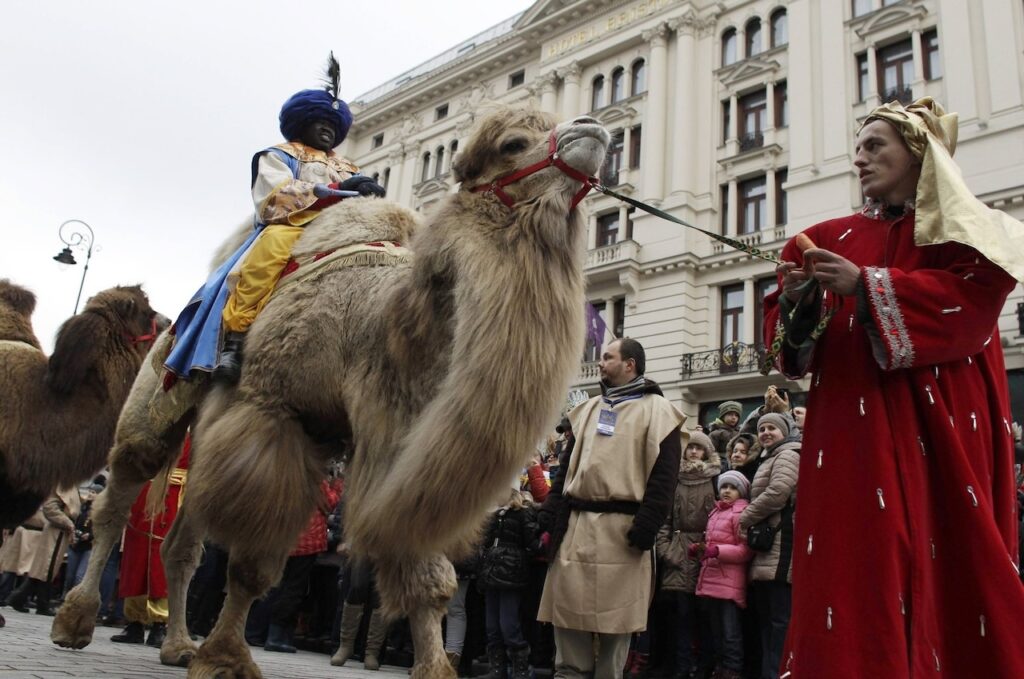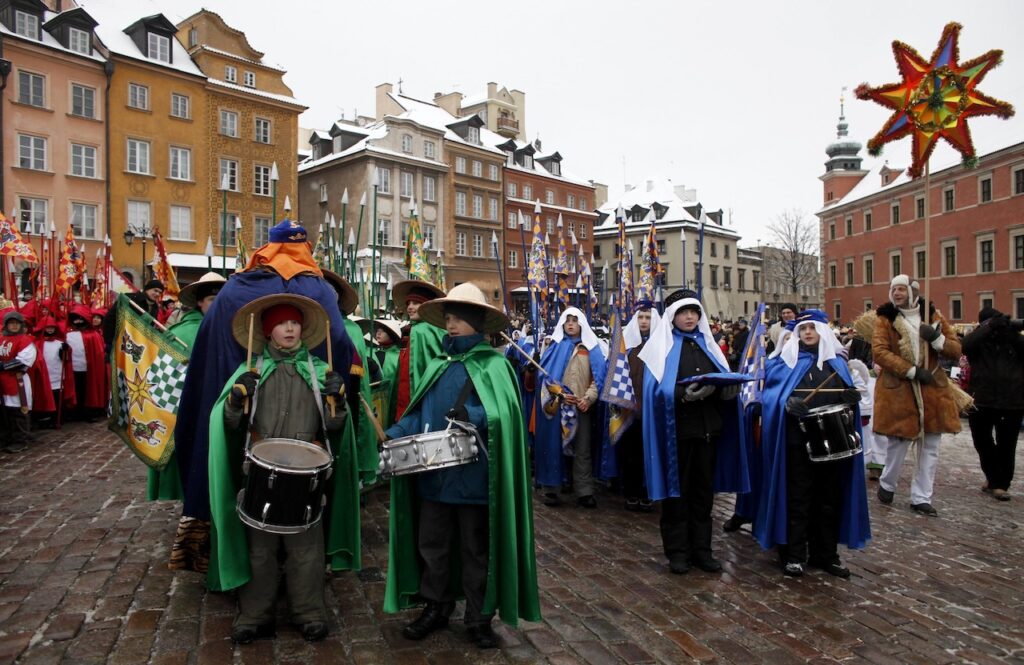WARSAW, Poland (OSV News) — Every year on the feast of the Epiphany, Jan. 6, Polish cities get flooded with joyful Three Kings Parades. Designed as theatrical performances that recall the historical event of Jesus’ birth and the visit of the Magi who worshiped him 2,000 years ago, the parades’ purpose is to familiarize their audiences with the Gospel tradition.
“The Magi came to the manger as pagans. They searched for truth and beauty, and they found God. This is the pattern for our parades: to commemorate their search and reach all — believers and non-believers,” Piotr Giertych, one of the initiators of the Three Kings Parades in Poland and a head of the foundation organizing them, told OSV News.
The Magi, “thanks to their reason, discovered that something important happened in the history of the world,” he said. From the very beginning, Poland’s parades were to commemorate “God’s love for every person in the world. Because everyone can fit around the manger.”
The event traces its history to 2009, when students in Warsaw decided to perform a live Nativity scene. Within two years, other places had joined Warsaw in holding the parades. Ukraine held the first Three Kings Parade outside Poland in 2013. In 2019, the parade was held in 752 places in Poland and in 22 places abroad, including in Chicago and New York, where smaller parades were organized by the cities’ Polish communities.

“The parade is a cultural, religious, and apolitical event open to everybody, regardless of one’s religious beliefs, personal convictions, or cultural traditions,” Giertych said. “It is not a time for protests or demonstrations against anybody or anything, but an occasion to spend time with others.”
During the parade, participants walk from a designated beginning point to the Nativity scene while singing Christmas carols. Amateur actors play the Holy Family and the Magi from three continents: Asia, Africa and Europe. The star-bearer and the Magi lead the parade, accompanied by children dressed as knights and ladies-in-waiting. Residents of the city or village also join the parade wearing crowns and singing Christmas carols from song books from the organizing foundation.
“Singing Christmas carols is an important part of the parade tradition,” Giertych told OSV News. “Christmas carols express the joy of the King born in Bethlehem. We print the carol booklets and we know that over the years, thousands of those booklets stayed in people’s homes, and they sing carols from the previous booklets on the following Christmas.”
Giertych said that many tourists join the parades.
“It is touching and amazing that since 2009, we have managed to build a tradition that unites peoples in so many places around the world,” he said. “It turned out not the concerts, not New Year’s Eve festivities, not shops and stores, but the Three Kings Parades have the biggest turnout around the time of Christmas, and this is more than we could dream of,” he said.
The feast of the Epiphany — which celebrates the Magi’s arrival and, through their encounter, Christ making himself known to the world — is a national holiday in Poland, a country of 27 million Catholics, 71% of the population. In 2023, 1.5 million people marched the Three Kings Parades in 750 cities around Poland and the world.

